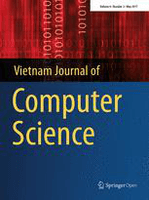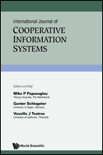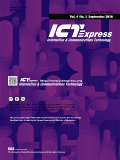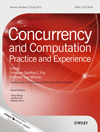
Big Data and Cognitive Computing
Scope & Guideline
Pioneering Research in Cognitive Computing and Beyond.
Introduction
Aims and Scopes
- Big Data Analytics:
The journal extensively covers methodologies for processing and analyzing large datasets, emphasizing techniques that enhance data extraction, management, and interpretation. - Artificial Intelligence Applications:
AI methodologies, including machine learning and deep learning, are a central theme, particularly their applications in diverse fields such as healthcare, finance, and social media. - Cognitive Computing:
Research that explores the use of cognitive computing systems to mimic human thought processes in analyzing and interpreting data is a key focus area. - Interdisciplinary Approaches:
The journal encourages interdisciplinary research that integrates big data with fields such as healthcare, environmental science, and urban planning, showcasing innovative solutions to complex problems. - Security and Privacy:
There is a consistent emphasis on the security and privacy challenges posed by big data, particularly in the context of autonomous systems and personal data handling. - Methodological Innovations:
The journal highlights novel algorithms, frameworks, and models that advance the state of the art in big data processing and analysis.
Trending and Emerging
- Federated Learning and Privacy-Preserving Techniques:
Recent publications emphasize federated learning approaches that enhance data privacy while allowing collaborative learning across distributed datasets. - Explainable AI (XAI):
The growing need for transparency in AI systems has led to increased research on explainable AI, focusing on methodologies that make AI decisions understandable to users. - Healthcare Innovations:
There is a surge in research applying big data and AI techniques to healthcare, particularly in predictive analytics for disease detection and management. - Environmental Monitoring and Sustainability:
Emerging studies focus on leveraging big data for environmental monitoring and sustainability efforts, addressing climate change and resource management challenges. - Real-Time Data Processing and IoT Integration:
The integration of IoT with big data analytics for real-time data processing and decision-making is gaining traction, reflecting the increasing importance of smart technologies. - Natural Language Processing (NLP):
NLP applications are rapidly emerging, particularly in sentiment analysis and social media monitoring, as researchers explore the implications of language data in various contexts.
Declining or Waning
- Traditional Data Management Techniques:
There has been a noticeable decrease in publications focusing on conventional data management strategies, as newer methodologies and technologies gain traction. - General Surveys and Reviews:
The number of general survey articles has declined, indicating a shift towards more targeted, application-specific research rather than broad overviews. - Basic Statistical Methods:
Basic statistical analysis papers are becoming less frequent, as more advanced computational methods dominate the research landscape. - Static Data Analysis:
Research focusing on static data analysis techniques is waning, with a growing preference for dynamic and real-time analytics that address current challenges. - Single-Domain Applications:
There is a decline in studies that focus solely on single-domain applications, as interdisciplinary research that incorporates multiple fields is increasingly favored.
Similar Journals

Vietnam Journal of Computer Science
Exploring innovative solutions in Southeast Asia's digital frontier.Vietnam Journal of Computer Science, published by World Scientific Publishing Co Pte Ltd, serves as a prominent platform for researchers and professionals in the rapidly evolving field of computer science. Launched as an Open Access journal in 2013, it aims to disseminate high-quality research across various subfields, including Artificial Intelligence, Computational Theory and Mathematics, Computer Vision, and Information Systems. With its ISSN 2196-8888 and E-ISSN 2196-8896, the journal provides valuable insights and contributes to the growing body of knowledge in computer science, particularly in Southeast Asia. Despite its relatively recent establishment, the journal has achieved significant rankings, including Q3 status in multiple categories and notable visibility in Scopus metrics, evidencing its commitment to fostering innovative research. This journal is essential for those looking to stay at the forefront of computational advancements and applications, particularly in Vietnam and beyond, facilitating an engaging dialogue among scholars and industry professionals.

INTERNATIONAL JOURNAL OF COOPERATIVE INFORMATION SYSTEMS
Exploring Synergies in Computer Science and Information SystemsINTERNATIONAL JOURNAL OF COOPERATIVE INFORMATION SYSTEMS
Published by WORLD SCIENTIFIC PUBL CO PTE LTD, the INTERNATIONAL JOURNAL OF COOPERATIVE INFORMATION SYSTEMS plays a pivotal role within the fields of Computer Science and Information Systems. With a focus on the development and application of cooperative information systems, this journal aims to foster innovation and collaborative research among scholars and professionals. Established in 1996, the journal has consistently published high-quality research that contributes to a better understanding of cooperative methodologies, enhancing system efficiencies across various applications. While its impact factor remains undisclosed, the journal is positioned in the Q4 category of the Scopus rankings, indicating a growing presence in the academic community. Although it does not offer open access, its rich repository of articles remains accessible to subscribers and relevant institutions. Located in Singapore, this journal will continue to serve as a critical resource for researchers, practitioners, and students keen on exploring the evolving dynamics of information systems in today's interconnected world.

JOURNAL OF INFORMATION SCIENCE AND ENGINEERING
Transforming Ideas into Innovative Solutions.JOURNAL OF INFORMATION SCIENCE AND ENGINEERING, published by the Institute of Information Science in Taiwan, is a pivotal platform for the dissemination of innovative research in the multidisciplinary fields of information science and engineering. Established in 1993, the journal primarily focuses on areas such as library and information sciences, human-computer interaction, hardware and architecture, as well as computational theory and software development. Despite holding a current Q4 ranking in several categories, the journal demonstrates significant potential for growth, particularly in computation and software systems, as evidenced by its Scopus rankings and percentiles. Researchers, professionals, and students will find this journal to be an invaluable resource to stay abreast of evolving theories and technologies in information science. The journal is accessible through traditional subscription models, fostering a broad academic outreach. It serves to enhance knowledge-sharing and collaboration within this dynamic and ever-evolving field.

ICT Express
Connecting Ideas, Transforming TechnologiesICT Express is a leading open-access journal published by Elsevier that has established itself at the forefront of the fields of Artificial Intelligence, Computer Networks and Communications, Hardware and Architecture, Information Systems, and Software. Since its inception in 2015, this South Korea-based journal has provided a vital platform for disseminating innovative research and practical applications across these rapidly evolving domains. With an impressive impact factor and consistently high Scopus rankings—placing it in the top quartiles of its categories—it attracts contributions from both seasoned experts and emerging scholars. Current access options ensure that groundbreaking findings are readily available to a global audience, thus fostering collaboration and advancement in technology and computational sciences. As ICT continues to reshape various industries, the significance of research published in ICT Express is crucial for staying ahead in the digital landscape.

Frontiers of Computer Science
Exploring the Nexus of Theory and Application in Computer ScienceFrontiers of Computer Science is a leading peer-reviewed journal dedicated to advancing the field of computer science through the publication of high-quality research articles, reviews, and theoretical discussions. Published by HIGHER EDUCATION PRESS, this journal has gained significant recognition, currently boasting a prestigious impact factor and ranking in the Q1 quartile for both Computer Science (miscellaneous) and Theoretical Computer Science categories in 2023. With a focus on the intersection of computational theory and practical applications, it serves as a vital platform for researchers, professionals, and students alike who are eager to contribute to and stay updated with groundbreaking developments. The journal’s scope encompasses a wide range of topics, reflecting the diverse nature of computer science today. Operating from Beijing, China, it emphasizes Open Access, ensuring that vital research is readily available to the global academic community. With its convergence period spanning from 2013 to 2024, Frontiers of Computer Science remains committed to fostering innovation and scholarly dialogue that drives the future of technology.

International Journal of Innovative Computing Information and Control
Advancing the frontiers of computational innovation.International Journal of Innovative Computing Information and Control, published by ICIC INT, is a prominent platform dedicated to advancing the fields of computational theory, information systems, software engineering, and theoretical computer science. Since its inception in 2007, the journal has garnered attention for its rigorous peer-reviewed research and has established itself within the academic community, attaining a notable Q3 quartile ranking across its categories as of 2023. With an impressive track record of convergence from 2007 to 2024, this journal offers a wealth of insights and innovations for researchers and professionals striving to push the boundaries of technology and computing. While it operates under a subscription model, the journal's commitment to enhancing knowledge in the ever-evolving landscape of computational sciences makes it an essential resource for academics, providing timely articles that address contemporary challenges in the field.

Baltic Journal of Modern Computing
Connecting global minds through open access scholarship.Baltic Journal of Modern Computing is a prominent academic journal dedicated to advancing the field of computer science through innovative research and insightful analyses. Established under the auspices of UNIV LATVIA, this open access journal has been pioneering accessible scholarly communication since 2008, ensuring that research findings are readily available to a global audience. With an ISSN of 2255-8942 and an E-ISSN of 2255-8950, it covers a broad spectrum of topics in computer science, specifically highlighted in its 2023 classification as Q3 within the miscellaneous category. The journal is indexed in Scopus, where it currently ranks 153 out of 232 in the general computer science category, positioning it in the 34th percentile, thereby reflecting its growing importance within the academic community. Based in the vibrant city of Riga, Latvia, at RAINIA BULVARIS 19, RIGA LV-1586, LATVIA, the Baltic Journal of Modern Computing continues to attract contributions from researchers and professionals eager to disseminate their findings and engage with a diverse readership devoted to contemporary computing challenges and solutions.

JOURNAL OF UNIVERSAL COMPUTER SCIENCE
Connecting researchers to the forefront of technology.JOURNAL OF UNIVERSAL COMPUTER SCIENCE, published by Graz University of Technology's Institute for Information Systems and Computer Media (IICM), stands as a pivotal resource in the field of computer science. Since its inception in 1994, this Open Access Journal has fostered a culture of knowledge sharing and collaboration, allowing readers from all corners of the globe to access cutting-edge research without barriers. With an impressive convergence of studies spanning from 1996 to 2024, the journal covers a breadth of topics within Computer Science, achieving a Q3 ranking in miscellaneous areas and a Q4 ranking in theoretical computer science as of 2023. It also holds significant standing in Scopus rankings, demonstrating its influence and reach among the scientific community. The journal is particularly valuable to researchers, professionals, and students eager to explore innovative ideas and techniques that push the boundaries of computer science. Based in Austria, the journal is dedicated to maintaining high standards of scholarly integrity while promoting interdisciplinary discourse and advancements in technology.

Frontiers in Big Data
Empowering Innovation in Data ScienceFrontiers in Big Data, published by Frontiers Media SA in Switzerland, is a leading open access journal that has established itself as a vital resource for scholars and practitioners in the expanding realms of artificial intelligence, computer science, and information systems since its inception in 2018. With an impressive impact factor reflected in its Q2 rankings across multiple categories, including Artificial Intelligence, Computer Science (Miscellaneous), and Information Systems, this journal serves as a pivotal platform for disseminating groundbreaking research and promoting interdisciplinary collaboration. The journal's commitment to open access ensures that high-quality research is readily accessible to a global audience, fostering the exchange of innovative ideas and advancements in big data technologies. By creating an inclusive space for diverse perspectives, Frontiers in Big Data aims to bridge the gap between theoretical research and practical application, making it an essential read for anyone invested in the future of data science.

CONCURRENCY AND COMPUTATION-PRACTICE & EXPERIENCE
Fostering Collaboration in Computational ExcellenceCONCURRENCY AND COMPUTATION-PRACTICE & EXPERIENCE, published by Wiley in the United Kingdom, serves as a pivotal platform for advancing research and innovation in the fields of computational theory, computer networks, and practical applications of computer science. With an impressive impact factor and recognition in the Q2 category for disciplines such as Computational Theory and Mathematics, this journal attracts a diverse range of scholarly articles that address the current challenges and developments in these areas. It boasts a comprehensive viewership with options for Open Access, enabling wide dissemination of knowledge. Indexed by Scopus with notable rankings in multiple categories, including a remarkable position in Computational Theory and Mathematics (Rank #41/176), the journal not only elevates academic discourse but also fosters collaboration among researchers, professionals, and students alike. As it progresses toward its 2024 milestone, CONCURRENCY AND COMPUTATION-PRACTICE & EXPERIENCE remains dedicated to publishing high-quality research that prepares its readership for the evolving technological landscape.